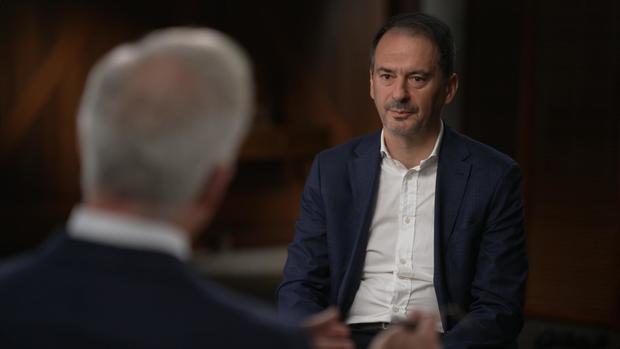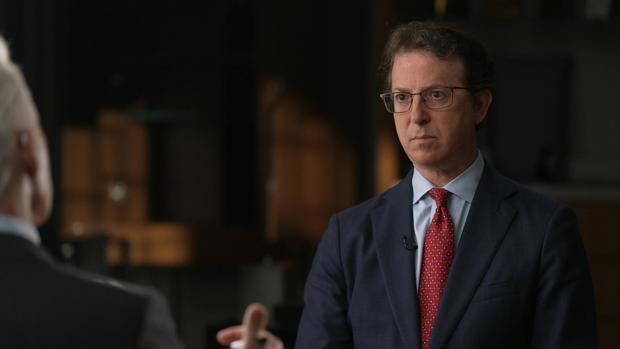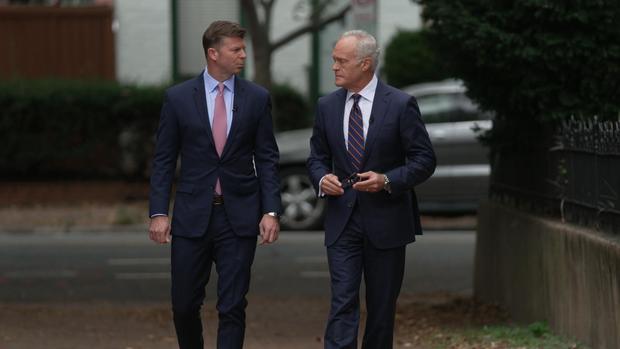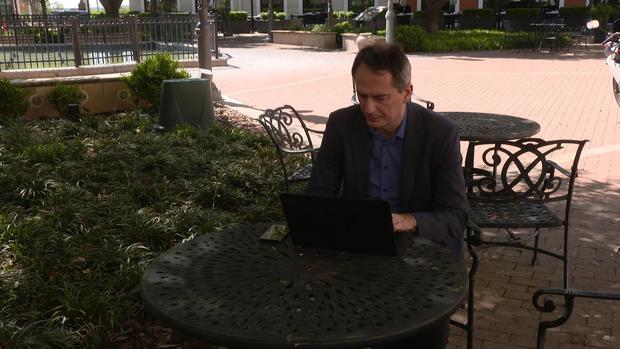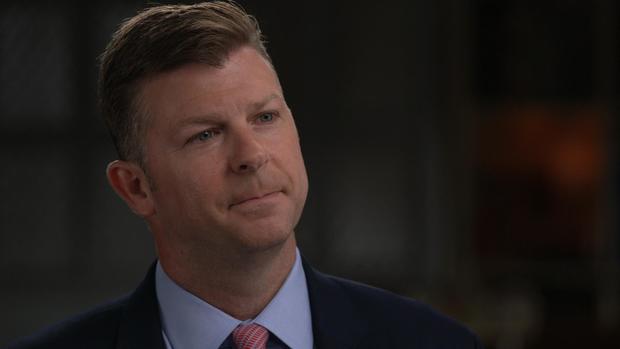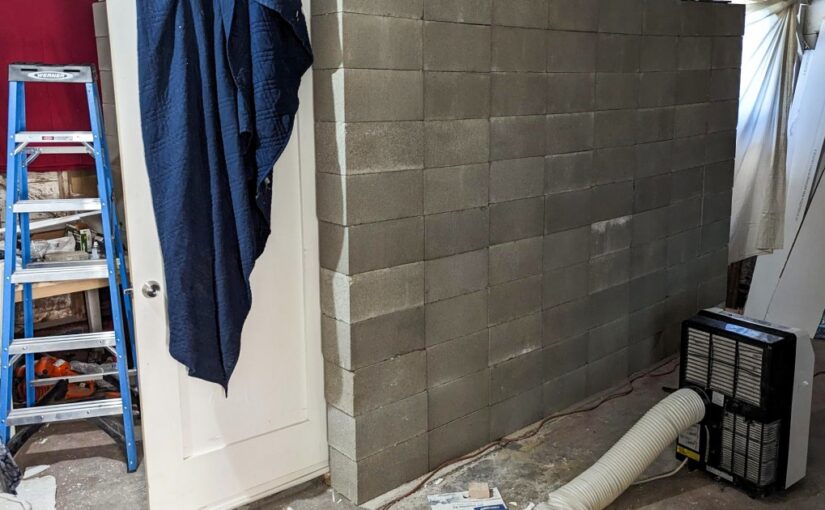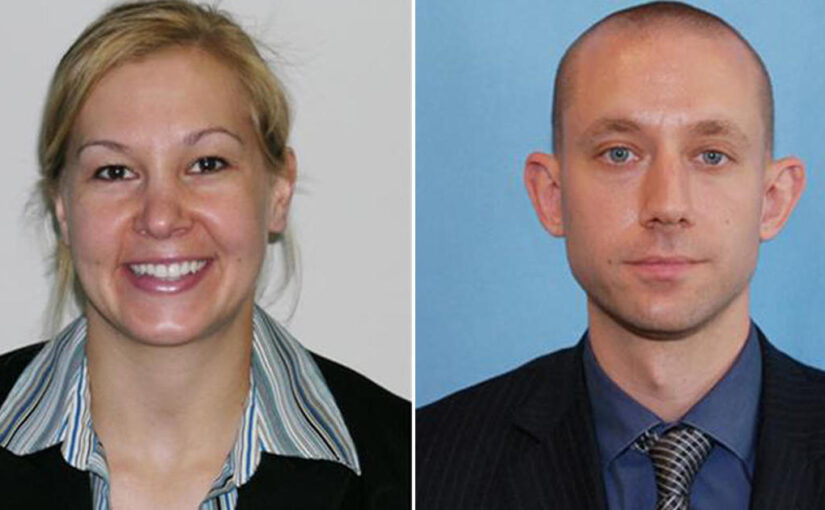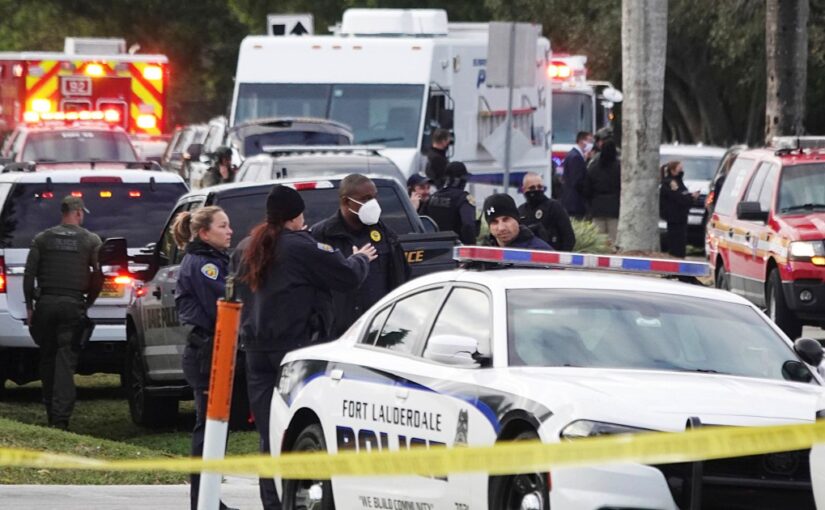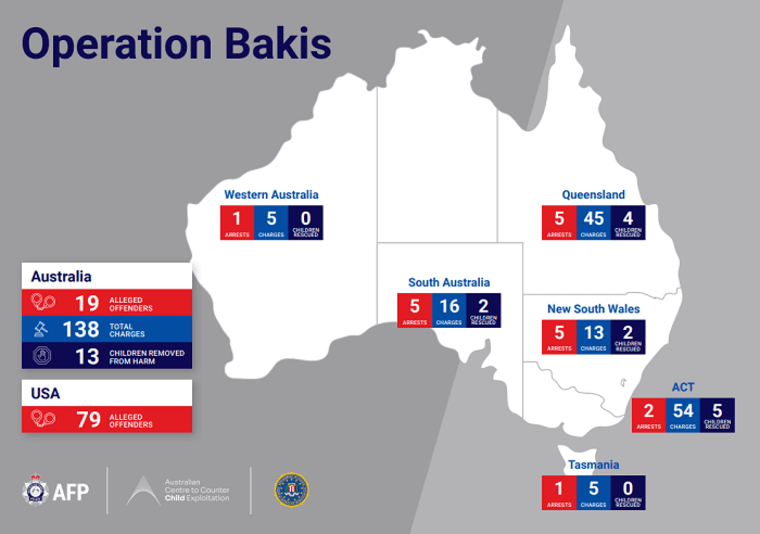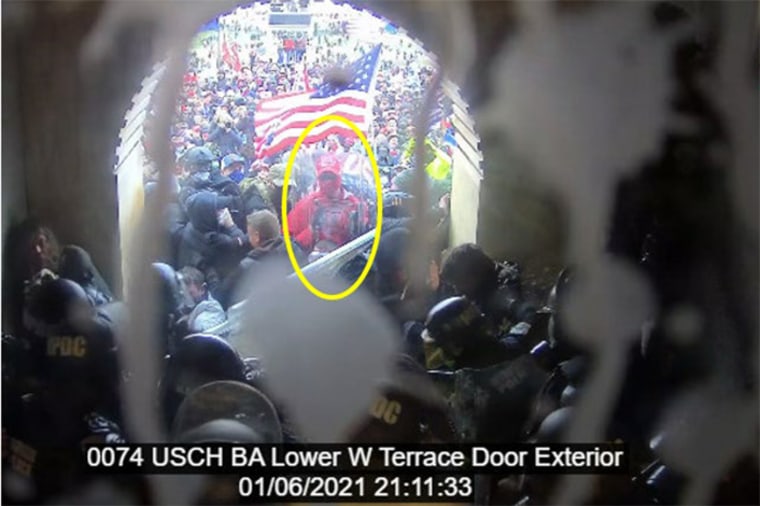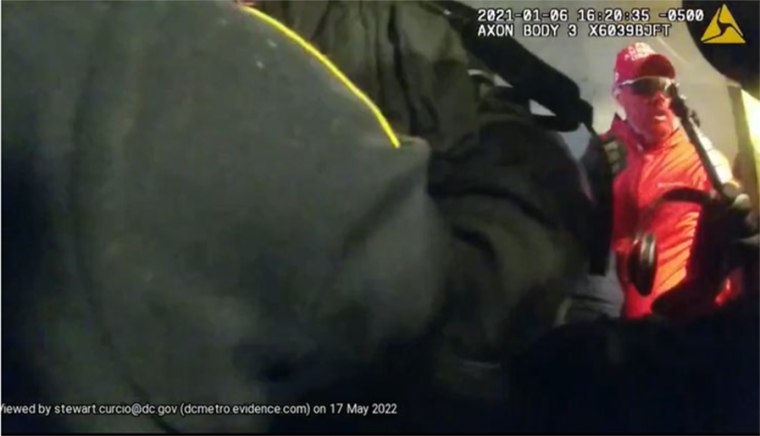This report is the result of a joint investigation by 60 Minutes, The Insider, and Der Spiegel
Tonight we have important developments in our five-year investigation of mysterious brain injuries reported by U.S. national security officials. The injured include White House staff, CIA officers, FBI agents, military officers and their families. Many believe that they were wounded by a secret weapon that fires a high-energy beam of microwaves or ultrasound. This is our fourth story and for the first time, we have evidence of who might be responsible. Most of the injured have fought for America, often in secret. And they’re frustrated that the U.S. government publicly doubts that an adversary is targeting Americans.
One of them is Carrie. We’re disguising her and not using her last name because she’s still an FBI agent working in counterintelligence. She says, in 2021, she was home in Florida when she was hit by a crippling force.
Carrie: And bam, inside my right ear, it was like a dentist drilling on steroids. That feeling when it gets too close to your eardrum? It’s like that, you know, times ten. It was like a high pitched, metallic drilling noise, and it knocked me forward at, like, a 45 degree angle this way.
She says she was by a window in her laundry room.
Carrie: My right ear was line-of-sight to that window while this thing was happening in my ear. And when I leaned forward it kind a—it didn’t knock me over, but it knocked me forward. I immediately felt pressure, and pressure and pain started coursing from inside my right ear, down my jaw, down my neck and into my chest.
At the same time, FBI agent Carrie told us, the battery in her phone began to swell until it broke the case. Finally she passed out on a couch. Because of chest pain, she was checked by a cardiologist and then returned to duty.
Carrie: And I remember complaining to my colleagues for months after that I felt like I had early Alzheimer’s. Short term memory, long term memory, confusing memories, uh, multitasking. My baseline changed. I was not the same person.
60 Minutes
Carrie’s story matches those we’ve uncovered over the years.
Olivia Troye: It was like this piercing feeling on the side of my head. It was like, I remember it was on the right side of my head and I, I got like vertigo.
Olivia Troye was Homeland Security adviser to Vice President Mike Pence. In our 2022 report, she told us she was hit outside the White House.
Anonymous: And then severe ear pain started. So I liken it to if you put a Q-tip too far and you bounce it off your eardrum. Well, imagine takin’ a sharp pencil and just kinda pokin’ that.
And this man told us he was among the first publicly known cases in 2016 from our embassy in Cuba. That’s how the incidents became known as “Havana Syndrome.” He’s medically retired from an agency we can’t name– blind in one eye and struggling for balance.
A major medical study for the government was led by Dr. David Relman of Stanford University. In our 2022 report he told us…
Dr. David Relman: What we found was we thought clear evidence of an injury to the auditory and vestibular system of the brain. Everything starting with the inner ear where humans perceive sound and sense balance, and then translate those perceptions into brain electrical signals.
His study found, “directed pulsed (radio frequency) energy…appears to be the most plausible mechanism…” For example, a focused beam of microwaves or acoustic ultrasound. More than 100 officials or family members have unexplained, persistent, symptoms.
Carrie: If I turn too fast, my gyroscope is off, essentially. It’s like a step behind where I’m supposed to be. So I’ll turn too fast, and I will literally walk right into the wall or the door frame.
Now, for the first time, the case of FBI agent Carrie suggests which adversary might be responsible. She spoke with the FBI’s permission but wasn’t allowed to discuss the cases she was on when she was hit. We have learned from other sources one of those cases involve this Mustang going 110 miles an hour.
Deputy (on bodycam video from 2020): Pull over, Pull over!
In 2020, near Key West, Florida, deputies tried to stop the Mustang for speeding. It ran 15 miles until it hit spike strips laid in its path.
Deputy (on bodycam video from 2020): Get out! Put it down! Get on the ground now.
A search of the car found notes of bank accounts.
Deputy (on bodycam video from 2020): Citibank…Discover Savings $75,000…
And this device, that looks like a walkie-talkie, can erase the car’s computer data including its GPS record. There was also a Russian passport.
Deputy (on bodycam video from 2020): What’s your first name?
Vitalii Kovalev (on bodycam video from 2020): Vitalii. V-I-T-A-L-I-I.
Vitalii Kovalev was the driver, from St. Petersburg—Russia not Florida.
Deputy (on bodycam video from 2020): Why did you run? Be honest with me.
Vitalii Kovalev (on bodycam video from 2020): I don’t know.
Deputy (on bodycam video from 2020): You know why you ran.
Vitalii Kovalev (on bodycam video from 2020): I don’t know.
And we don’t know why he ran. But what we learned suggests he was a Russian spy.
Christo Grozev: What we see here is Vitalii Kovalev fitting exactly this formula.
Christo Grozev is a journalist, legendary for unmasking Russian plots. In 2020, he uncovered the names of the Russian secret agents who poisoned Vladimir Putin’s rival Alexey Navalny. Grozev is lead investigator for our collaborator on this story, The Insider, a magazine by Russian exiles. We asked him to trace Vitalii Kovalev.
60 Minutes
Christo Grozev: He studied in a military institute. He studied radio electronics with a particular focus on use within the military of micro-electronics. He had all the technology know-how that would be required for somebody to be assisting an operation that requires high technology. But then all of a sudden, after working for two years in a military institute he up and decides to become a chef.
Kovalev immigrated to the U.S. and worked as a chef in New York and Washington D.C., even appearing at far left, in a TV cooking segment.
But Kovalev was actually a Russian military electrical engineer with a top secret security clearance.
Scott Pelley: Can someone like Kovalev simply decide to drop all of that and become a chef?
Christo Grozev: It is not an easy job to just leave that behind. Once you’re in the military, and you’ve been trained, and the Ministry of Defense has invested in you, you remain at their beck and call for the rest of your life.
We don’t know what Kovalev was up to but our sources say, over months, he spent 80 hours being interviewed by FBI agent Carrie, who had investigated multiple Russian spies. Kovalev pled guilty to evading police and reckless driving. He was sentenced to 30 months. While he was in jail, Carrie says she was hit in Florida and, a year later, when she awoke to the same symptoms in the middle of the night in California.
Carrie: It felt like I was stuck in this state of, like, disorientation, not able to function. Like, what is happening? And my whole body was pulsing,
Mark Zaid is Carrie’s attorney. He has a security clearance and for decades, has represented Americans working in national security. Zaid has more than two dozen clients suffering symptoms of Havana Syndrome, which the government now calls “anomalous health incidents.”
Mark Zaid: I have CIA and State Department clients as well, who believe they’ve been impacted domestically. There are dozens of CIA cases that have happened domestically that is at least believed. And, and we’re not even just talking about physical manifestation. We’re talking about evidence of computer issues in the midst of the incident where computer screens just literally stop working or go flicker on and off.
Scott Pelley: Do you know whether there are other FBI agents who have also suffered from these anomalous health incidents?
Mark Zaid: There are other FBI agents and personnel, not just agents, analysts. I represent one other FBI person who was impacted in Miami. And I also know of FBI personnel who believe they were hit overseas in the last decade.
Scott Pelley: Were any of these members of the FBI counterintelligence people in addition to Carrie?
Mark Zaid: The one thread that I know of with the FBI personnel that is common among most if not all of my clients other than the family members connected to the employee, was they were all doing something relating to Russia.
60 Minutes
Vitalii Kovalev served his time and in 2022, went back to Russia—ignoring American warnings that he was in danger because he’d spent so much time with the FBI. Christo Grozev found this death certificate from last year, which says Kovalev was killed at the front in Ukraine.
Scott Pelley: Do you think Kovalev was sent to Ukraine as a punishment?
Christo Grozev: One theory is that he was sent there in order for him to be disposed of.
Scott Pelley: Is Kovalev really dead, or is this another cover story?
Christo Grozev: That is a very good question. And we actually worked on both hypotheses for a while. I do believe at this point that he was dead.
Carrie: We’re dealing with energy weapons. It’s not going anywhere. Look how effective it’s been. It’s next generation weaponry. And, unfortunately, it’s been refined on some of us, and we’re the test subjects.
U.S. intelligence says, publicly, there is no credible evidence that an adversary is inflicting brain injuries on national security officials. And yet, more than 100 Americans have symptoms that scientists say could be caused by a beam of microwaves or, acoustic ultrasound. The Pentagon launched an investigation run by a recently retired Army lieutenant colonel. Greg Edgreen has never spoken publicly until now.
Scott Pelley: Are we being attacked?
Greg Edgreen: My personal opinion, yes.
Scott Pelley: By whom?
Greg Edgreen: Russia.
Greg Edgreen ran the investigation for the Defense Intelligence Agency. He would not discuss classified information but he described his team’s work from 2021 to 2023.
Greg Edgreen: We were collecting a large body of data, ranging from signals intelligence, human intelligence, open-source reporting. Anything regarding the internet, travel records, financial records, you name it. Unfortunately I can’t get into specifics, based on the classification. But I can tell you at a very early stage, I started to focus on Moscow.
Scott Pelley: Can you tell me about the patterns you began to see?
Greg Edgreen: One of the things I started to notice was the caliber of our officer that was being impacted. This wasn’t happening to our worst or our middle-range officers. This was happening to our top 5%, 10% performing officers across the Defense Intelligence Agency. And consistently there was a Russia nexus. There was some angle where they had worked against Russia, focused on Russia, and done extremely well.
Scott Pelley: What has been the impact on American national security?
Greg Edgreen: The impact has been that the intelligence officers and our diplomats working abroad are being removed from their posts with traumatic brain injuries. They’re being neutralized.
60 Minutes
Tonight, we’re reporting for the first time, an incident at last year’s NATO summit in Lithuania—a meeting that focused largely on Russia’s invasion of Ukraine and was attended by President Biden. Multiple sources tell us that a senior official of the Department of Defense was struck by the symptoms and sought medical treatment. We told Greg Edgreen what we’d learned.
Greg Edgreen: It tells me that there are no barriers on what Moscow will do, on who they will attack, and that if we don’t face this head on, the problem is going to get worse.
The problem first appeared in public in 2016. U.S. officials reported being hurt in Cuba and the incidents became known as Havana Syndrome. But we have learned it started two years earlier when at least four Americans reported symptoms in Frankfurt, Germany. There is also evidence of what could be revenge attacks. For example, in 2014, three CIA officers were stationed in Ukraine, Vladimir Putin’s obsession. 2014 was the year that a popular revolt overthrew Putin’s preferred leader. Later, those CIA officers went on to other assignments and reported being hit, one in Uzbekistan, one in Vietnam, and the third officer’s family was hit in London.
If it is Russia, investigative reporter Christo Grozev believes he knows who’s involved. In 2018, Grozev was the first to discover the existence of a top secret Russian intelligence unit which goes by a number, 29155.
Christo Grozev: These are people who are trained to be versatile assassins and sabotage operators. They are trained in countersurveillance, they are trained in explosives, they’re trained to be using poison, and technology equipment to actually inflict pain or damage to the targets.
Grozev works with our collaborators on this report, a magazine called The Insider and Germany’s Der Spiegel. he has a long track record uncovering Russian documents. And Grozev says he found one that may link 29155 to a directed energy weapon.
Christo Grozev: And when I saw it, I literally had tears in my eyes, because it was spelling out what they had been doing.
It’s a piece of accounting. An officer of 29155 received a bonus for work on quote, “potential capabilities of non-lethal acoustic weapons…”
Christo Grozev: Which told us that this particular unit had been engaged with somewhere, somehow, empirical tests of a directed energy unit.
Scott Pelley: There it is, written down in black and white.
Christo Grozev: It’s the closest to a receipt you can have for this.
60 Minutes
We’ve also found that Russia’s 29155 may have been present in Tbilisi, Georgia when Americans reported incidents there.
Scott Pelley: Do you believe that you were attacked?
Anonymous: Absolutely.
She asked us to withhold her name for her safety. She’s the wife of a Justice Department official who was with the embassy in Tbilisi. She’s a nurse with a Ph.D. in anesthesiology. On Oct. 7, 2021, she says that she was in her laundry room when she was blindsided by a sound.
Anonymous: As I’m reaching into the dryer– I am completely consumed by a piercing sound that I can only describe as when you listen to a movie and the main character is also consumed by the sound after a bomb goes off. That is similar to the sound that I heard. And it just pierced my ears, came in my left side, felt like it came through the window, into my left ear. I immediately felt fullness in my head, and just a piercing headache. And when I realized that I needed to get out of the laundry room, I left the room, and went into our bedroom next door, and projectile vomited in our bathroom
We have learned that hers was the second incident that week. Sources tell us, earlier, in the neighborhood, a U.S. official, their spouse and child were hit. We have also learned of a phone call that was intercepted nearby. A man says in Russian, “Is it supposed to have blinking green lights?” and “Should I leave it on all night.” We have no idea what he was talking about but, the next day, the incidents began.
Sources tell us that an investigation centered on this Russian, Albert Averyanov. His name, on travel manifests and phone records, appears alongside known members of Unit 29155. He is also the son of the commander.
Christo Grozev: He was groomed to become a member of the unit since he was 16. His number is in the phone books of all members of the unit. Clearly, he’s more than just the son of the boss. He’s a colleague of these people.
Grozev found Albert Averyanov’s phone was turned off during the Tbilisi incidents but our sources say there’s evidence someone in Tbilisi logged into Averyanov’s personal email during this time. Most likely, Grozev believes, Averyanov himself—placing him in the city.
Christo Grozev: We believe members of Unit 29155 were there in order to facilitate, supervise, or maybe even personally implement attacks on American diplomats, on American government officials, using an acoustic weapon.
Scott Pelley: After you were able to get out of the laundry room, call your husband, what did you do then?
Anonymous: I went downstairs. I first looked on our security camera, which is right beside our front door, to see if anyone was outside. There was a vehicle right outside of our gate. I took a photo of that vehicle and noticed that it was not a vehicle that I recognized. And I went outside.
Scott Pelley: Did you see anyone around the vehicle?
Anonymous: I did.
Scott Pelley: We sent you a photograph of Albert Averyanov. And this is the picture that we sent you.
Anonymous: You did.
Scott Pelley: And I wonder if that looks anything like the man you saw outside your home.
Anonymous: It absolutely does. And when I received this photo, I had a visceral reaction. It made me feel sick. I cannot absolutely say for certainty that it is this man, but I can tell you that even to this day, looking at him makes me feel that same visceral reaction. And I can absolutely say that this looks like the man that I saw in the street.
This 40-year-old wife and mother is among the most severely injured people we have met.
Anonymous: My headaches and brain fog continued. Later on into that weekend, I started having trouble walking down the stairs, specifically at night. I had trouble finding the steps to get down the stairs. So my coordination and vestibular system started just really falling apart.
She was medically evacuated. And now doctors say she has holes in her inner ear canals—the vestibular system that creates the sense of balance. Two surgeries put metal plates in her skull. Another surgery is likely.
Anonymous: It’s devastating. It’s absolutely devastating.
Despite experiences like hers, the Office of the Director of National Intelligence said last year it’s “very unlikely a foreign adversary is responsible.” But the DNI also acknowledged that some intelligence agencies had only “low” or “moderate” confidence in that assessment. This month, the National Institutes of Health reported results of brain scans. NIH said there’s no evidence of physical damage. but the medical science of so-called anomalous health incidents remains vigorously debated. For its part, the Director of National Intelligence says the symptoms probably result from “… preexisting conditions, conventional illnesses, and environmental factors.” Attorney Mark Zaid represents more than two dozen ahi clients.
Scott Pelley: What do you make of the intelligence community assessment?
Mark Zaid: So I’ve had access to classified information relating to AHI. I can’t reveal it. I wouldn’t reveal it. I will tell you that I don’t believe it to be the entire story, and I know of information that undermines or contradicts what they are saying publicly.
Scott Pelley: Are you saying that the government wants to cover this up?
Mark Zaid: There is, in my view, without a doubt, evidence of a cover up. Now, some of that cover up is not necessarily that, oh, we found a weapon and we don’t want anybody to know about it. What I’ve seen more so is we see lines of inquiry that would take us potentially to answers we don’t want to have to deal with, so we’re not going to explore any of those avenues.
60 Minutes
Greg Edgreen: “You know, if my mother had seen what I saw, she would say, ‘It’s the Russians, stupid.'”
Greg Edgreen who ran the military investigation told us he had the Pentagon’s support but, in the Trump, and Biden administrations, he says, the bar for proof was set impossibly high.
Greg Edgreen: I think it was set so high because we did not, as a country, and a government, want to face some very hard truths.
Scott Pelley: And what are those?
Greg Edgreen: Can we secure America? Are these massive counterintelligence failures? Can we protect American soil and our people on American soil? Are we being attacked? And if we’re being attacked, is that an act of war?
After what he learned in his classified investigation, Greg Edgreen retired from the Army to start a company to help the victims. He hopes to channel government contracts into treatment programs.
As with all spy stories, much is classified and what remains is circumstantial. None of the witnesses tonight wanted to speak. Some fear for their families. But all felt compelled to shine a light on what they see as a war of shadows –a war America may not be winning.
Christo Grozev: If this is what we’ve seen with the hundreds of cases of Anomalous Health Incidents, I can assure that this has become probably Putin’s biggest victory. In his own mind this has been Russia’s biggest victory against the West.
Scott Pelley: In terms of the long-term, would you consider this to be life-altering?
Anonymous: Absolutely life-altering. For our whole family.
“Targeting Americans” statements
Prior to 60 Minutes’ March 31, 2024, broadcast which featured correspondent Scott Pelley’s report on Havana Syndrome, we reached out to the Office of the Director of National Intelligence, the White House, and the FBI for comments on our story, “Targeting Americans.”
They responded to 60 Minutes with the following statements:
Office of the Director of National Intelligence:
“We continue to closely examine anomalous health incidents (AHIs), particularly in areas we have identified as requiring additional research and analysis. Most IC agencies have concluded that it is very unlikely a foreign adversary is responsible for the reported AHIs. IC agencies have varying confidence levels because we still have gaps given the challenges collecting on foreign adversaries—as we do on many issues involving them. As part of its review, the IC identified critical assumptions surrounding the initial AHIs reported in Cuba from 2016 to 2018, which framed the IC’s understanding of this phenomenon, but were not borne out by subsequent medical and technical analysis. In light of this and the evidence that points away from a foreign adversary, causal mechanism, or unique syndromes linked to AHIs, IC agencies assess those symptoms reported by U.S. personnel probably were the result of factors that did not involve a foreign adversary. These findings do not call into question the very real experiences and symptoms that our colleagues and their family members have reported. We continue to prioritize our work on such incidents, allocating resources and expertise across the government, pursuing multiple lines of inquiry and seeking information to fill the gaps we have identified.”
White House:
“At the start of the Biden-Harris Administration and again following the 2023 Intelligence Community assessment, the White House has directed departments and agencies across the federal government to prioritize investigations into the cause of AHIs and to examine reports thoroughly; to ensure that U.S. Government personnel and their families who report AHIs receive the support and timely access to medical care that they need; and to take reports of AHIs seriously and treat personnel with respect and compassion. The Biden-Harris administration continues to emphasize the importance of prioritizing efforts to comprehensively examine the effects and potential causes of AHIs.”
FBI:
“The issue of Anomalous Health Incidents is a top priority for the FBI, as the protection, health and well-being of our employees and colleagues across the federal government is paramount. We will continue to work alongside our partners in the intelligence community as part of the interagency effort to determine how we can best protect our personnel. The FBI takes all U.S. government personnel who report symptoms seriously. In keeping with this practice, the FBI has messaged its workforce on how to respond if they experience an AHI, how to report an incident, and where they can receive medical evaluations for symptoms or persistent effects.
Produced by Oriana Zill de Granados and Michael Rey. Associate producers: Emily Gordon, Kit Ramgopal and Jamie Woods. Broadcast Associate: Michelle Karim. Edited by Michael Mongulla and Joe Schanzer.

